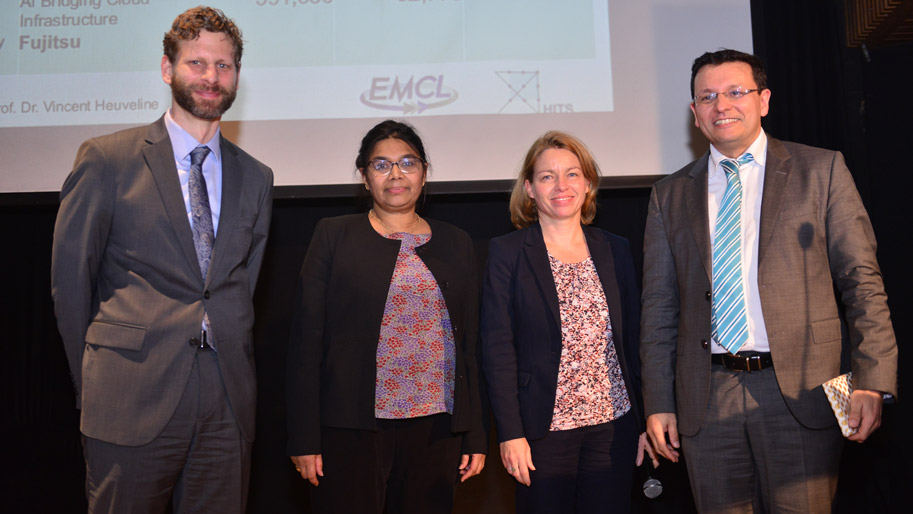First Franco-German Science Circle Lecture: Data Science and High Performance Computing – Evolution or Revolution for Research?
 © DWIH New Delhi
© DWIH New Delhi
The Embassy of the Federal Republic of Germany, New Delhi and The Embassy of France in New Delhi, together with DWIH New Delhi and the French Institute in India hosted the first ever Franco-German Science Circle Lecture in Delhi on Wednesday, 20th February 2019.
The lecture focused on the emerging fields of data sciences and the deployment of high performance computing in the modern world, especially in the area of medical and surgical sciences. Prof Dr Vincent Heuveline, Chief Information Officer (CIO) and Director of the Computing Centre at Heidelberg University, Germany delivered the talk, which brought together students, researchers, medical professionals and experts from upcoming areas including IoT and data sciences.
Prof. Adèle Martial-Gros, Deputy Counselor for Academic and Scientific Cooperation at the Embassy of France, opened the session with her remarks on Franco-German collaboration. She emphasized how science and technology were the core areas of co-operation between the two nations, with more than 5000 joint projects in these areas under way.
Dr. Stephan Lanzinger, Counsellor, Head of Science and Technology Section, German Embassy, added that France and Germany were close partners in foreign policy as well.
Ms. Heike Mock, Director, DWIH New Delhi then introduced the speaker for the evening, Prof Dr Vincent Heuveline to the audience and welcomed him on stage.
Prof. Dr. Heuveline began his presentation with an ode to the Indian mathematician, Shri Ramanujan, who played a pioneering role in laying the foundation stone for many of the developments in AI and Data Sciences today. He then illustrated how modern supercomputing is saving lives and helping patients heal faster and more efficiently, cognition guided surgery and medical engineering being some of the examples of its wide range of application.
He familiarized the audience with technical aspects of high performance computing and introduced Moore’s Law, according to which, a doubling of computer power occurs every 18 months. The increasing power of supercomputers also generates cause for concern in terms of energy usage. High amounts of energy are needed to cool such powerful machines. On the flip side, the enormous heat generated via this computing can be used as a source of heating in cold winters in parts of Germany, he added.
A second aspect of the talk focused on data. Data volume, Prof Dr Heuveline stated, doubles every year in what can only be termed as an exponential growth. Not only this, application of data is also growing simultaneously, progressing from its use for prediction to description, verification and exception detection. Uncertainty quantification and reduction holds the key in this respect of making data useful.
Emerging trends like cloud computing can also be game changers, he added, provided they fulfil 5 basic conditions, namely those of elasticity, transparency in costs, pooling of resources, being need-based, and universal availability.
Towards the end, he answered the basic question if data sciences and high performance computing were an evolution or revolution for research. Due to the exponentially increasing capacity in computing and data and exponentially decreasing prices at which it is available, these tends could be described as an evolution, he concluded.
The talk ended with a Q and A round, followed by networking tea.
Date: 20th February 2019
Venue: Alliance Française de Delhi
